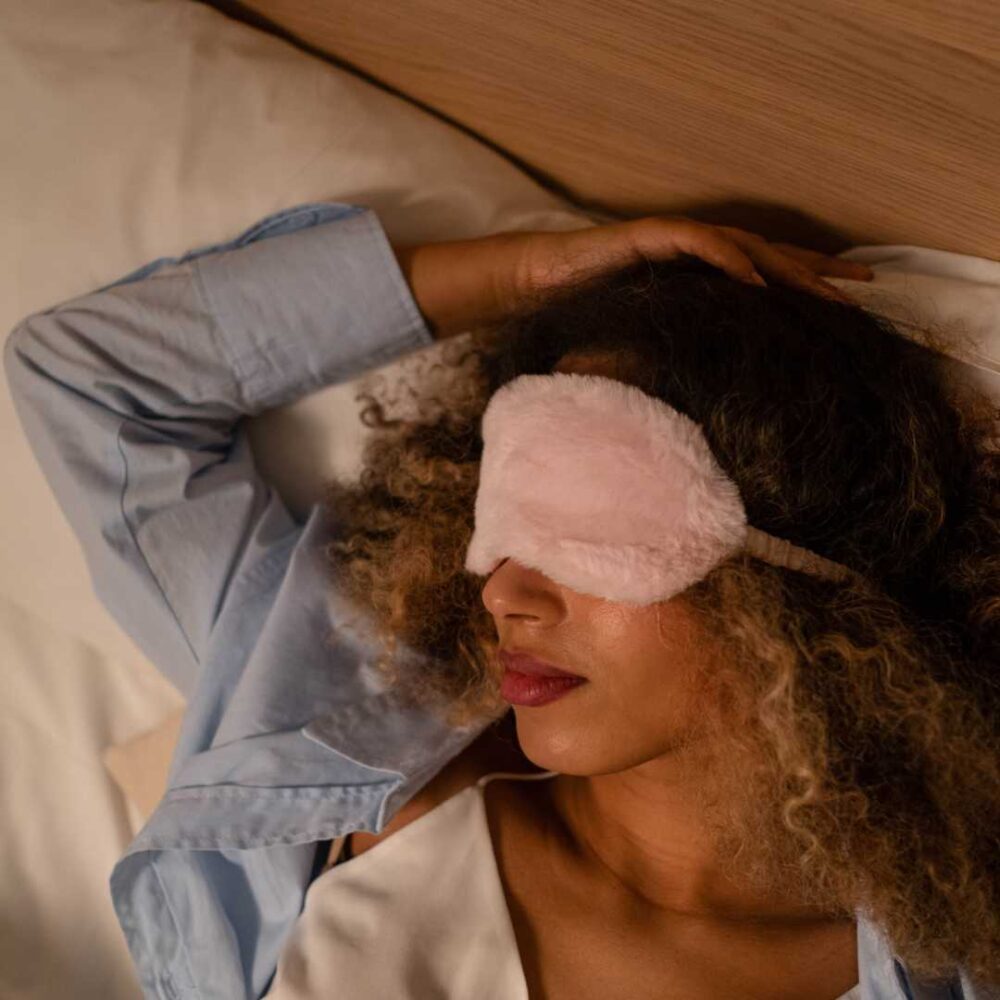
Poor sleep is becoming the most common problems in modern society. It is crucial for overall health and well-being, and is necessary for restoring energy, mood and cognitive function. Despite its importance, many struggle with sleep issues, leading them to turn to traditional sleep aids such as medications or often alcohol.
Many of the current sleep medications do not give you a good nights rest, they just knock you out. If you get hit upside the head with a baseball bat, are you getting quality sleep cycles, or are you just "out". No your not.
Sleep is what makes you energized, regenerates your brain cells, and and makes you feel alive.
CBDA helps boost your endocannabinoid system, which is a critical regulator of sleep cycles, and can often get our of balance causing many sleep problems. However, CBDA has superior absorption to all other cannabinoids, over 450% greater than CBD!
Article Highlights
- Cannabinoids, like CBDA and CBD oil, have long been used for helping with sleep
- CBDA has superior absorption to CBD and other cannabinoids
- Balancing the endocannabinoid system with CBDA can help regulate sleep patterns
Introduction to the Role of Sleep in Overall Health
Sleep is a vital component of overall health and well-being, playing a critical role in all of our mental and physical activities. Good sleep, which has a proper sleep-wake cycle, has numerous health benefits and improves mental performance, mood, cardiovascular and overall health.
However, poor sleep regularly raises the risk of diseases and disorders, from heart disease and stroke to obesity and dementia. To improve sleep, it is important to decrease anxiety, fall asleep faster, and maintain a regular sleep-wake schedule.
Importance of Sleep for Health:
Dont settle for adequate, get amazing sleep!Sleep is necessary to feel energized, wake up ready, happy and looking forward to the day. Why? Sleep regulates and regenerates almost everything in your body:
- Regulating hormones: Sleep plays a crucial role in regulating the release of hormones in the body, including growth hormones and cortisol.
- Improving memory consolidation: Sleep helps consolidate memories and store new information, improving learning and memory abilities.
- Boosting the immune system: A good night's sleep can boost the immune system, helping the body fight infections and illnesses.
- Reducing stress: Sleep helps reduce stress levels, improving mental health and overall well-being.
- Improving athletic performance: Adequate sleep can enhance physical performance, improve reaction time, and increase endurance.
- Regulating mood: Sleep helps regulate mood, preventing irritability, anxiety, and depression.
- Improving cognitive function: Sleep plays a key role in cognitive function, including concentration, attention, and decision-making abilities.
- Lowering the risk of chronic diseases: Regular, adequate sleep can lower the risk of developing chronic diseases, including type 2 diabetes and high blood pressure.
Effects of Sleep Deprivation:
On the other hand, sleep deprivation can lead to a range of negative effects, including:- Fatigue: A lack of sleep leads to feelings of fatigue, making it difficult to focus and complete daily tasks.
- Anxiety: Chronic sleep deprivation has been linked to anxiety disorders, leading to feelings of worry and stress.
- Depression: Sleep and mood are closely linked, and sleep deprivation can lead to depression and a negative impact on overall mental health.
- Increased risk of health problems: Chronic sleep deprivation has been linked to an increased risk of health problems, including heart disease, stroke, cancer and diabetes.
- Impaired cognitive function: Sleep deprivation can negatively impact cognitive function, including memory recall, attention, and decision-making abilities.
- Weakened immune system: Lack of sleep can weaken the immune system, making it more difficult for the body to fight off infections and illnesses.
- Weight gain: Sleep deprivation has been linked to weight gain and an increased risk of obesity.
- Reduced athletic performance: Lack of sleep can decrease endurance, reaction time, and overall physical ability.
- Increased accidents and mistakes: Sleep deprivation can increase the risk of accidents and mistakes, especially in situations that require alertness and attention, such as driving or operating machinery.
The Science Behind CBDA and Sleep
CBD and cannabis products have a long history of use for sleep, and now many sleep studies have found substantial benefits. W now know that they work through the endocannabinoid system, which is critical for high quality and regenerative sleep.
CBDA oil, like CBD oil, also works in part by interacting with the cannabinoid receptors located in the nervous system.
CBDA and the Endocannabinoid System
CBDA is a natural compound found in the hemp plant (Cannabis sativa), and its chemical composition has been researched to suggest that it may bring balance to the body's endocannabinoid system.
The endocannabinoid system is integral to many of the bodily functions, including sleep patterns, by controlling the release of hormones such as cortisol and melatonin. Cortisol controls when you wake up, but too much during the day can compromise sleep quality.
CBDA can bind with cannabinoid receptors in the endocannabinoid system, and may be the main way through which it helps improve sleep.
Currently, there are limited studies on CBDA, and more research is needed to understand its effects and interactions with the endocannabinoid system fully. However, research suggests that CBDA, as a constituent of the cannabis sativa plant, may hold potential therapeutic benefits.
CBDA and Hormones
Research suggests that CBDA may help you sleep better through multiple mechanisms. Specifically, preclinical data suggest that CBDA affects the release of cortisol and melatonin, the hormones responsible for regulating sleep and wakefulness. By improving your ability to fall asleep and reducing anxiety, CBDA may potentially promote better sleep.Additionally, CBDA may benefit other sleep disorders, such as insomnia and restless leg syndrome, due to its potent anti-inflammatory properties. Inflammation contributes to many different medical conditions and diseases, including sleep disorders like obstructive sleep apnea.
However, more clinical data is needed to fully understand the safety and side effects of using CBDA for sleep disorders like obstructive sleep apnea. It is unclear if it will have the same effects on sleep as CBD products because they are similar compounds but differ slightly in structure (i.e., CBDA has a carboxyl group where CBD does not). Further research is needed to determine how exactly CBDA works before it can be recommended as a safe treatment option for these conditions.
Studies and Research of CBDA Impact on Sleep
Despite the promising potential benefits of CBDA for sleep, there is currently limited research on the topic. Most of the research on CBDA so far have focused on factors that affect sleep, such as anxiety, stress, pain, and inflammation.CBDA has shown significant benefits in these areas, and many customers report improvement with their sleep disorders when some of these underlying conditions are present.
The mechanisms by which CBD products have a positive effect on sleep disorders are also found in CBDA oil.
Because CBDA has over 450-1000% greater absorption than CBD, it can have significantly more potent effects.
Many of the sleep benefits from CBDA may arise from its ability to affect:
- Anxiety and stress relief
- Anti inflammatory properties
- Calming effects through serotonin receptors
- Endocannabinoid balance
Limitations
While the preliminary research is promising, it's important to note that research into CBDA and its impact on sleep and potential treatment is still in its early stages. More research is needed to fully understand the potential benefits and limitations of CBDA as a sleep aid. Much of the current research has been conducted on animal models, with limited human studies available.
How CBDA Can Be Consumed for Maximum Sleep Benefits
If you're interested in trying CBDA for improved sleep, there are several methods of consumption to choose from. For sleep, we recommend sublingual tinctures or edibles, but everyone is a little different:
Oral Consumption
One of the most popular methods of consuming CBDA is through oral consumption, such as in the form of a tincture or capsule. This method allows for precise dosing, making it easier to determine the right amount for maximum sleep benefits.
Topical Application
Another method of consuming CBDA is topical application, such as in the form of a lotion or balm. This method is ideal for individuals who prefer not to consume CBDA orally or for those with digestive issues that may make oral consumption difficult. This form is typically used for muscle and joint pain relief, and not often used for sleep disorders.
Inhalation
CBDA can also be consumed through inhalation, such as in the form of a vaporizer. This method allows for fast and effective delivery of CBD into the bloodstream, making it an attractive option for individuals seeking immediate sleep benefits.
However, CBDA will convert to CBD if exposed to high levels of heat in a vape. If using a vape for CBDA, you will not get the benefits since all the CBDA will be inhaled as CBD.
Edibles
CBDA can be incorporated into various food products, such as gummies, cookies, or chocolate. This method allows for easy and convenient consumption, making it a popular choice for individuals looking for a tasty way to consume CBDA. This method allows for slow and steady absorption of CBDA, providing longer-lasting effects for sleep.
Make sure to check the certificate of analysis of your CBDA edible before buying since making the edible often requires heat which can convert CBDA to CBD.
Sublingual
CBDA can be taken sublingually, meaning under the tongue, in the form of a liquid or oil. This method allows for faster absorption as the CBDA bypasses the digestive system and is absorbed directly into the bloodstream through the oral mucosa. This method may be especially helpful for individuals seeking immediate sleep benefits.
Transdermal patch
CBDA can be delivered through a patch on the skin for slow, steady release. This method allows for consistent and sustained delivery of CBDA over a longer period of time, making it a good choice for those looking for sustained benefits. This method can help to promote relaxation and sustained sleep throughout the night.
It is important to note that while CBDA is considered safe and well-tolerated, it is always advisable to consult with a healthcare provider before trying any new supplement, especially if you have any underlying health conditions.
Conclusion and Future Outlook for CBDA and Sleep Research
Early research and current evidence suggests that CBDA may be a promising solution for those struggling with sleep problems. Users of CBDA report improved sleep quality and duration, reduce anxiety, and improve mood. However, it is essential to consult a healthcare provider before trying CBDA or any other sleep aid to ensure it is safe and appropriate.As research in the field of CBDA continues, we can expect to learn more about its potential benefits and drawbacks, including its impact on sleep. Until then, CBDA may be worth considering as a natural alternative to traditional sleep aids for those looking to improve their sleep quality and overall well-being.



